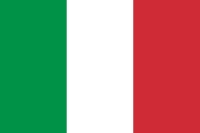The adoption of new energy legislation in Italy means the official end of anti-nuclear policies. Planning for new reactors can now begin in earnest.
A text covering energy along with provisions on internationalization of corporations was passed in the Senate yesterday before lunch by a majority of 254 to 205 with 25 abstentions. After four readings in the upper house since November last year it now will pave the way for the return of nuclear generation.
 |
In the 1950s Italy was among the |
The bill covers the establishment of a Nuclear Regulatory Agency appointed by the President and gives the government six months to select sites for possible new build, with previous its four previous nuclear power sites ruled out. World Nuclear Association director general John Ritch said: "The question now is whether the Berlusconi government can overcome the challenges of siting and financing. Both will depend on its ability to sidestep NIMBY reactions and generate a strong sense of regional competition for these major infrastructure projects."
The country's major utility, Enel, has a partnership with Electricité de France (EdF) for a joint venture investigation towards building four 1650 MWe reactors. Germany's EOn is also keen to gain leading roles in nuclear build projects and these raise the prospect of Italy building 10,000 MWe of nuclear capacity in coming decades - enough to supply over 25% of current electricity demand.
Italy has for many years had far higher electricity prices than any similar nation thanks in part to a reliance on fossil fuels and imports. The new policy sets nuclear power as well as energy efficiency, renewables and infrastructure for liquified natural gas as a way to transform Italian energy.
It was the same set of issues that prompted Italians to embark on a very successful nuclear energy program in the 1950s, but this was cut short by a 1987 referendum. In 1991 Italy then became the only one of the 'phase-out' countries (the others being Belgium, Germany, Spain and Sweden) to actually succeed in shutting down all their reactors. In that respect, the return of nuclear power after a previous forced closure is literally a renaissance.
The policy reversal was celebrated by Foratom, the European trade group for the nuclear industry. Its director general, Santiago San Antonio, said: "More and more countries now recognise that the arguments in favour of nuclear energy are irresistible."






_15863.jpg)







